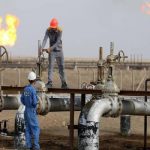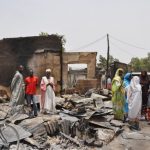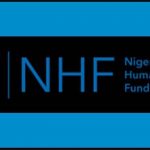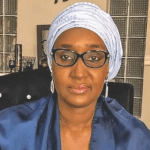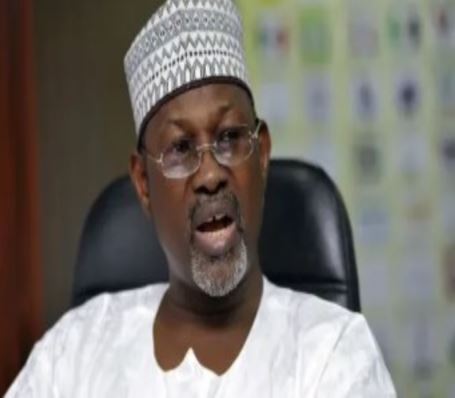The United Nations and other humanitarian partners have announced a $383 million aid plan for Lebanon to provide life-saving assistance to the country.
After the country experienced economic and political turbulence in addition to the devastating effects of the Covid-19 outbreak, the Emergency Response Plan (ERR) will protect nearly 1.1 million people and migrants over the following year.
“Food, health, energy, water, internet, fuel, and education are becoming increasingly unaffordable for Lebanese households. The impact on the poorest and most vulnerable is terrible, and survival has become their only purpose “Najat Rochdi, the UN Resident and Humanitarian Coordinator in Lebanon, said during the opening in Beirut.
Lebanon was considered a high middle-income country only a year ago but now many citizens now face “situations which were inconceivable”, she said referring to 78 percent of the population now living under the poverty line.
The situation is “a living nightmare” and has left some of the most vulnerable groups in increasingly critical conditions.
Healthcare services are under extreme duress and are unable to function due to power and water shortages, as well as a scarcity of medical equipment.
“People are increasingly unable to access and afford healthcare amid the growing shortages of medicines and medical supplies. Pharmacy shelves are empty, hospital stocks are nearly depleted and home medicine cabinets are bare,” Rochdi said.
According to the World Bank, Lebanon’s financial crisis, which was triggered by the coronavirus epidemic and the explosion of the country’s main Beirut port, could be among the world’s three worst since the mid-nineteenth century.
The United Nations and other humanitarian partners have announced a $383 million aid plan for Lebanon to provide life-saving assistance to the country.
After the country experienced economic and political turbulence in addition to the devastating effects of the Covid-19 outbreak, the Emergency Response Plan (ERR) will protect nearly 1.1 million people and migrants over the following year.
“Food, health, energy, water, internet, fuel, and education are becoming increasingly unaffordable for Lebanese households. The impact on the poorest and most vulnerable is terrible, and survival has become their only purpose “Najat Rochdi, the UN Resident and Humanitarian Coordinator in Lebanon, said during the opening in Beirut.
Lebanon was considered a high middle-income country only a year ago but now many citizens now face “situations which were inconceivable”, she said referring to 78 percent of the population now living under the poverty line.
The situation is “a living nightmare” and has left some of the most vulnerable groups in increasingly critical conditions.
Healthcare services are under extreme duress and are unable to function due to power and water shortages, as well as a scarcity of medical equipment.
“People are increasingly unable to access and afford healthcare amid the growing shortages of medicines and medical supplies. Pharmacy shelves are empty, hospital stocks are nearly depleted and home medicine cabinets are bare,” Rochdi said.
According to the World Bank, Lebanon’s financial crisis, which was triggered by the coronavirus epidemic and the explosion of the country’s main Beirut port, could be among the world’s three worst since the mid-nineteenth century.
The United Nations and other humanitarian partners have announced a $383 million aid plan for Lebanon to provide life-saving assistance to the country.
After the country experienced economic and political turbulence in addition to the devastating effects of the Covid-19 outbreak, the Emergency Response Plan (ERR) will protect nearly 1.1 million people and migrants over the following year.
“Food, health, energy, water, internet, fuel, and education are becoming increasingly unaffordable for Lebanese households. The impact on the poorest and most vulnerable is terrible, and survival has become their only purpose “Najat Rochdi, the UN Resident and Humanitarian Coordinator in Lebanon, said during the opening in Beirut.
Lebanon was considered a high middle-income country only a year ago but now many citizens now face “situations which were inconceivable”, she said referring to 78 percent of the population now living under the poverty line.
The situation is “a living nightmare” and has left some of the most vulnerable groups in increasingly critical conditions.
Healthcare services are under extreme duress and are unable to function due to power and water shortages, as well as a scarcity of medical equipment.
“People are increasingly unable to access and afford healthcare amid the growing shortages of medicines and medical supplies. Pharmacy shelves are empty, hospital stocks are nearly depleted and home medicine cabinets are bare,” Rochdi said.
According to the World Bank, Lebanon’s financial crisis, which was triggered by the coronavirus epidemic and the explosion of the country’s main Beirut port, could be among the world’s three worst since the mid-nineteenth century.
The United Nations and other humanitarian partners have announced a $383 million aid plan for Lebanon to provide life-saving assistance to the country.
After the country experienced economic and political turbulence in addition to the devastating effects of the Covid-19 outbreak, the Emergency Response Plan (ERR) will protect nearly 1.1 million people and migrants over the following year.
“Food, health, energy, water, internet, fuel, and education are becoming increasingly unaffordable for Lebanese households. The impact on the poorest and most vulnerable is terrible, and survival has become their only purpose “Najat Rochdi, the UN Resident and Humanitarian Coordinator in Lebanon, said during the opening in Beirut.
Lebanon was considered a high middle-income country only a year ago but now many citizens now face “situations which were inconceivable”, she said referring to 78 percent of the population now living under the poverty line.
The situation is “a living nightmare” and has left some of the most vulnerable groups in increasingly critical conditions.
Healthcare services are under extreme duress and are unable to function due to power and water shortages, as well as a scarcity of medical equipment.
“People are increasingly unable to access and afford healthcare amid the growing shortages of medicines and medical supplies. Pharmacy shelves are empty, hospital stocks are nearly depleted and home medicine cabinets are bare,” Rochdi said.
According to the World Bank, Lebanon’s financial crisis, which was triggered by the coronavirus epidemic and the explosion of the country’s main Beirut port, could be among the world’s three worst since the mid-nineteenth century.
The United Nations and other humanitarian partners have announced a $383 million aid plan for Lebanon to provide life-saving assistance to the country.
After the country experienced economic and political turbulence in addition to the devastating effects of the Covid-19 outbreak, the Emergency Response Plan (ERR) will protect nearly 1.1 million people and migrants over the following year.
“Food, health, energy, water, internet, fuel, and education are becoming increasingly unaffordable for Lebanese households. The impact on the poorest and most vulnerable is terrible, and survival has become their only purpose “Najat Rochdi, the UN Resident and Humanitarian Coordinator in Lebanon, said during the opening in Beirut.
Lebanon was considered a high middle-income country only a year ago but now many citizens now face “situations which were inconceivable”, she said referring to 78 percent of the population now living under the poverty line.
The situation is “a living nightmare” and has left some of the most vulnerable groups in increasingly critical conditions.
Healthcare services are under extreme duress and are unable to function due to power and water shortages, as well as a scarcity of medical equipment.
“People are increasingly unable to access and afford healthcare amid the growing shortages of medicines and medical supplies. Pharmacy shelves are empty, hospital stocks are nearly depleted and home medicine cabinets are bare,” Rochdi said.
According to the World Bank, Lebanon’s financial crisis, which was triggered by the coronavirus epidemic and the explosion of the country’s main Beirut port, could be among the world’s three worst since the mid-nineteenth century.
The United Nations and other humanitarian partners have announced a $383 million aid plan for Lebanon to provide life-saving assistance to the country.
After the country experienced economic and political turbulence in addition to the devastating effects of the Covid-19 outbreak, the Emergency Response Plan (ERR) will protect nearly 1.1 million people and migrants over the following year.
“Food, health, energy, water, internet, fuel, and education are becoming increasingly unaffordable for Lebanese households. The impact on the poorest and most vulnerable is terrible, and survival has become their only purpose “Najat Rochdi, the UN Resident and Humanitarian Coordinator in Lebanon, said during the opening in Beirut.
Lebanon was considered a high middle-income country only a year ago but now many citizens now face “situations which were inconceivable”, she said referring to 78 percent of the population now living under the poverty line.
The situation is “a living nightmare” and has left some of the most vulnerable groups in increasingly critical conditions.
Healthcare services are under extreme duress and are unable to function due to power and water shortages, as well as a scarcity of medical equipment.
“People are increasingly unable to access and afford healthcare amid the growing shortages of medicines and medical supplies. Pharmacy shelves are empty, hospital stocks are nearly depleted and home medicine cabinets are bare,” Rochdi said.
According to the World Bank, Lebanon’s financial crisis, which was triggered by the coronavirus epidemic and the explosion of the country’s main Beirut port, could be among the world’s three worst since the mid-nineteenth century.
The United Nations and other humanitarian partners have announced a $383 million aid plan for Lebanon to provide life-saving assistance to the country.
After the country experienced economic and political turbulence in addition to the devastating effects of the Covid-19 outbreak, the Emergency Response Plan (ERR) will protect nearly 1.1 million people and migrants over the following year.
“Food, health, energy, water, internet, fuel, and education are becoming increasingly unaffordable for Lebanese households. The impact on the poorest and most vulnerable is terrible, and survival has become their only purpose “Najat Rochdi, the UN Resident and Humanitarian Coordinator in Lebanon, said during the opening in Beirut.
Lebanon was considered a high middle-income country only a year ago but now many citizens now face “situations which were inconceivable”, she said referring to 78 percent of the population now living under the poverty line.
The situation is “a living nightmare” and has left some of the most vulnerable groups in increasingly critical conditions.
Healthcare services are under extreme duress and are unable to function due to power and water shortages, as well as a scarcity of medical equipment.
“People are increasingly unable to access and afford healthcare amid the growing shortages of medicines and medical supplies. Pharmacy shelves are empty, hospital stocks are nearly depleted and home medicine cabinets are bare,” Rochdi said.
According to the World Bank, Lebanon’s financial crisis, which was triggered by the coronavirus epidemic and the explosion of the country’s main Beirut port, could be among the world’s three worst since the mid-nineteenth century.
The United Nations and other humanitarian partners have announced a $383 million aid plan for Lebanon to provide life-saving assistance to the country.
After the country experienced economic and political turbulence in addition to the devastating effects of the Covid-19 outbreak, the Emergency Response Plan (ERR) will protect nearly 1.1 million people and migrants over the following year.
“Food, health, energy, water, internet, fuel, and education are becoming increasingly unaffordable for Lebanese households. The impact on the poorest and most vulnerable is terrible, and survival has become their only purpose “Najat Rochdi, the UN Resident and Humanitarian Coordinator in Lebanon, said during the opening in Beirut.
Lebanon was considered a high middle-income country only a year ago but now many citizens now face “situations which were inconceivable”, she said referring to 78 percent of the population now living under the poverty line.
The situation is “a living nightmare” and has left some of the most vulnerable groups in increasingly critical conditions.
Healthcare services are under extreme duress and are unable to function due to power and water shortages, as well as a scarcity of medical equipment.
“People are increasingly unable to access and afford healthcare amid the growing shortages of medicines and medical supplies. Pharmacy shelves are empty, hospital stocks are nearly depleted and home medicine cabinets are bare,” Rochdi said.
According to the World Bank, Lebanon’s financial crisis, which was triggered by the coronavirus epidemic and the explosion of the country’s main Beirut port, could be among the world’s three worst since the mid-nineteenth century.



